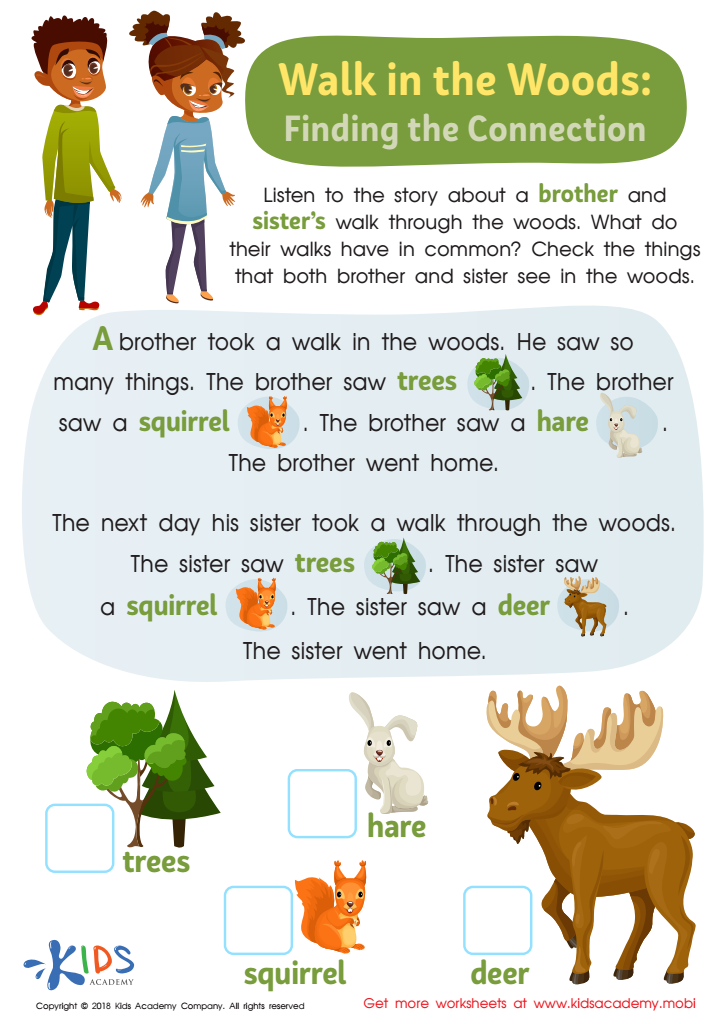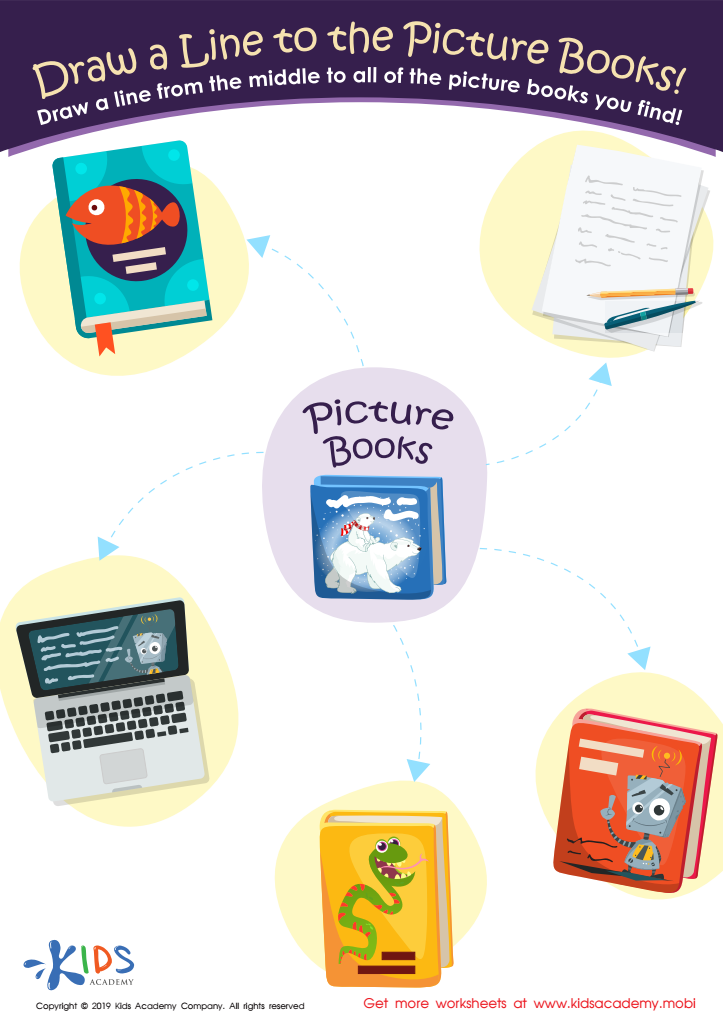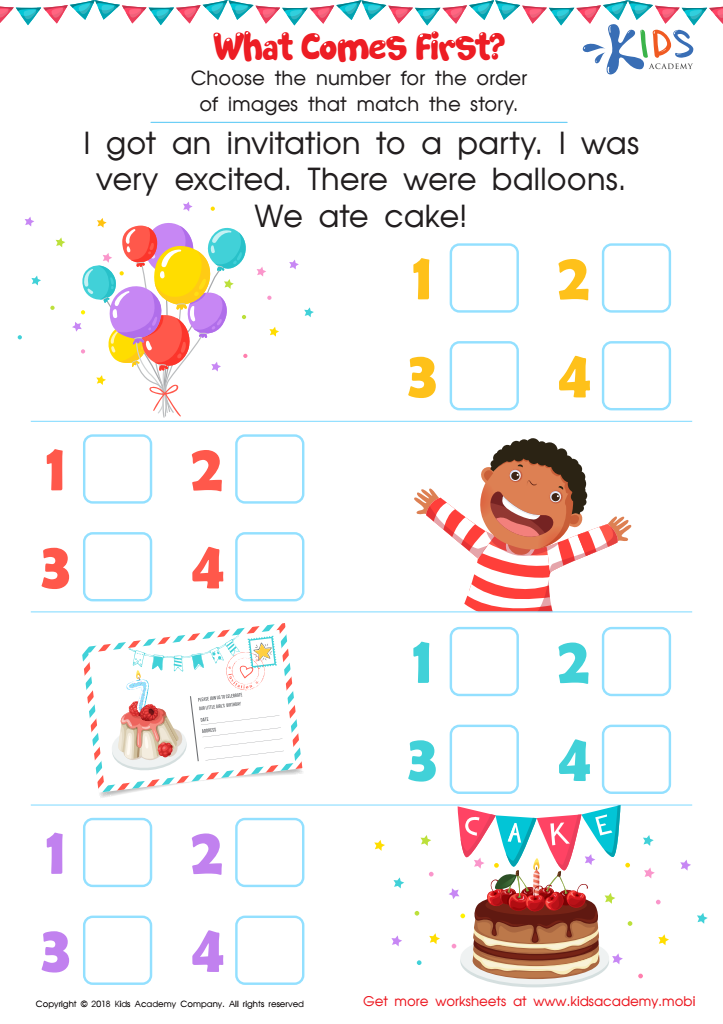Logical thinking Normal Reading Comprehension Worksheets for Ages 4-7
3 filtered results
-
From - To
Enhance your child's critical thinking and reading skills with our Logical Thinking Normal Reading Comprehension Worksheets designed for ages 4-7. These engaging worksheets, available on Kids Academy, offer a variety of age-appropriate passages followed by thoughtfully crafted questions that encourage young readers to analyze, infer, and understand the text more deeply. Perfect for building foundational literacy and cognitive skills, our resources make learning fun and interactive. Boost your child's confidence in reading and problem-solving with activities tailored to their developmental stage, enabling a smooth progression in their educational journey.


Walk In the Woods: Finding Connections Worksheet


Draw a Line to the Picture Books Worksheet


What Comes First Worksheet
Parents and teachers should be deeply invested in fostering logical thinking and reading comprehension in children aged 4-7 because these foundational skills significantly impact future academic and personal success. During early childhood, the brain is incredibly malleable, making it an optimal time for developing cognitive skills that will serve as the building blocks for future learning.
Logical thinking helps children to reason, solve problems, and make connections between different pieces of information. For example, sorting shapes or understanding patterns are early exercises in logical thinking that pave the way for more complex mathematical and scientific concepts. By nurturing these skills early on, children develop a mindset geared towards critical thinking and analytical processing.
Reading comprehension is equally vital as it underpins all areas of learning. At this stage, children are transitioning from recognizing letters and sounds to understanding and interpreting text. Strong reading comprehension equips children with the ability to gather information, follow directions, and understand stories, which enhances both their academic achievements and social interactions.
Together, logical thinking and reading comprehension are essential not just for academic milestones but for life skills too. They help children become effective communicators, critical thinkers, and lifelong learners. Prioritizing these skills in the formative years lays a robust foundation for future educational endeavors and overall personal development.
 Assign to My Students
Assign to My Students
















